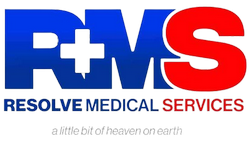Choosing the right primary care doctor is a crucial decision that can significantly impact your health and well-being. A primary care doctor serves as your first point of contact for medical care, providing routine check-ups, health advice, and referrals to specialists when needed. With so many options available, selecting the right doctor can be overwhelming. In this article, we’ll guide you through the process of choosing the right primary care doctor for your needs.
Understanding Your Needs
Before starting your search, it’s essential to consider your specific needs and preferences. Ask yourself:
– What are my health concerns?: Do you have a chronic condition, such as diabetes or hypertension, that requires specialized care?
– What are my priorities?: Are you looking for a doctor with a specific communication style, bedside manner, or expertise in a particular area?
– What is my insurance coverage?: Are there specific doctors or networks that are covered under your insurance plan?
Researching Potential Doctors
Once you have a clear understanding of your needs, start researching potential doctors. You can:
– Ask for referrals: Ask friends, family members, or colleagues for recommendations.
– Check online reviews: Look up doctors on review websites, such as Healthgrades or RateMDs, to see what other patients have to say about their experiences.
– Check credentials: Verify a doctor’s qualifications, including their medical degree, residency, and board certification.
– Check hospital affiliations: Consider the hospital or healthcare system a doctor is affiliated with, in case you need hospitalization or specialized care.
Evaluating a Doctor’s Qualities
When evaluating a potential doctor, consider the following qualities:
– Communication style: Do they listen attentively to your concerns and explain things clearly?
– Bedside manner: Are they empathetic, friendly, and approachable?
– Availability: Are they available to answer questions or concerns outside of regular office hours?
– Continuity of care: Do they have a system in place for managing your care, including follow-up appointments and test results?
Questions to Ask During a Consultation
When meeting with a potential doctor, ask questions like:
– What is your approach to preventive care?: How do they emphasize health promotion and disease prevention?
– How do you handle chronic conditions?: How do they manage ongoing care for conditions like diabetes or hypertension?
– What is your communication style?: How do they prefer to communicate with patients, and how quickly do they respond to questions or concerns?
– What are your office hours and availability?: What are their office hours, and how do they handle after-hours emergencies?
Making a Decision
After researching and evaluating potential doctors, it’s time to make a decision. Consider:
– Your gut feeling: Do you feel comfortable and confident in the doctor’s abilities?
– Your priorities: Does the doctor meet your specific needs and priorities?
– Your insurance coverage: Is the doctor covered under your insurance plan?
Conclusion
Choosing the right primary care doctor requires careful consideration of your needs, research, and evaluation of potential doctors. By following these steps, you can find a doctor who provides high-quality care, communicates effectively, and meets your unique needs. Remember, your primary care doctor is a partner in your healthcare journey, and finding the right one can make all the difference in your health and well-being.
Additional Tips
– Don’t be afraid to switch doctors: If you’re not satisfied with your current doctor, it’s okay to switch to a new one.
– Consider a doctor’s office staff: The office staff can play a significant role in your overall experience, so consider their friendliness, helpfulness, and efficiency.
– Look for a doctor who is board-certified: Board certification indicates that a doctor has met certain standards of education, training, and expertise in their field.
By taking the time to choose the right primary care doctor, you can establish a long-term relationship that promotes your health, well-being, and peace of mind.






Comments are closed